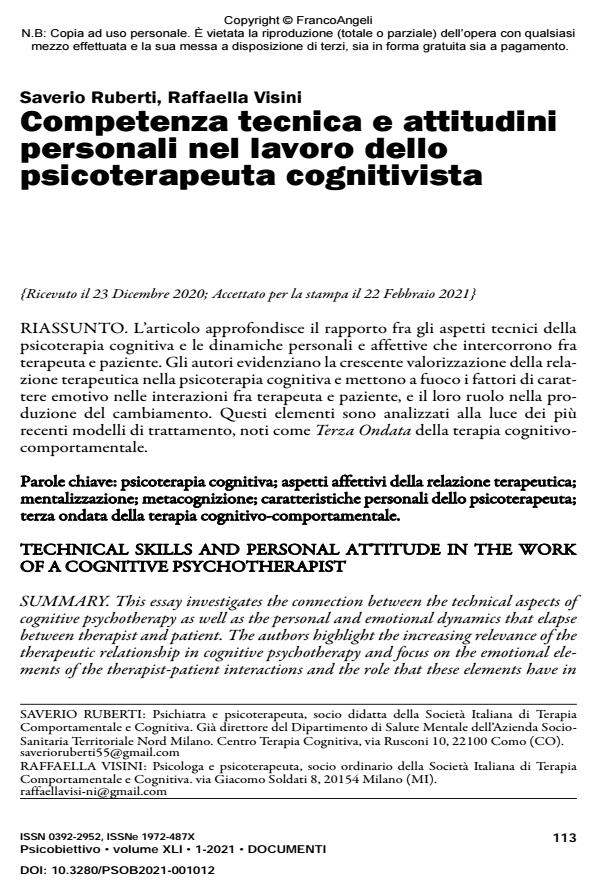Technical skills and personal attitude in the work of a cognitive psychotherapist
Journal title PSICOBIETTIVO
Author/s Saverio Ruberti, Raffaella Visini
Publishing Year 2021 Issue 2021/1
Language Italian Pages 15 P. 113-127 File size 173 KB
DOI 10.3280/PSOB2021-001012
DOI is like a bar code for intellectual property: to have more infomation
click here
Below, you can see the article first page
If you want to buy this article in PDF format, you can do it, following the instructions to buy download credits

FrancoAngeli is member of Publishers International Linking Association, Inc (PILA), a not-for-profit association which run the CrossRef service enabling links to and from online scholarly content.
This essay investigates the connection between the technical aspects of cognitive psychotherapy as well as the personal and emotional dynamics that elapse between therapist and patient. The authors highlight the increasing relevance of the therapeutic relationship in cognitive psychotherapy and focus on the emotional elements of the therapist-patient interactions and the role that these elements have in enhancing change. These changes are examined by keeping in mind the most recent treatment models, known as the Third Wave of cognitive behavioral psychotherapy.
Keywords: Cognitive psychotherapy; affective aspect of psychotherapeutic relationship; mentalization; metacognition; personal characteristics of psychotherapist; third wave of cognitive-behavioral therapy.
- Dibattiti Saverio Ruberti, in PSICOTERAPIA E SCIENZE UMANE 3/2020 pp.471
DOI: 10.3280/PU2020-003009
Saverio Ruberti, Raffaella Visini, Competenza tecnica e attitudinipersonali nel lavoro dello psicoterapeuta cognitivista in "PSICOBIETTIVO" 1/2021, pp 113-127, DOI: 10.3280/PSOB2021-001012